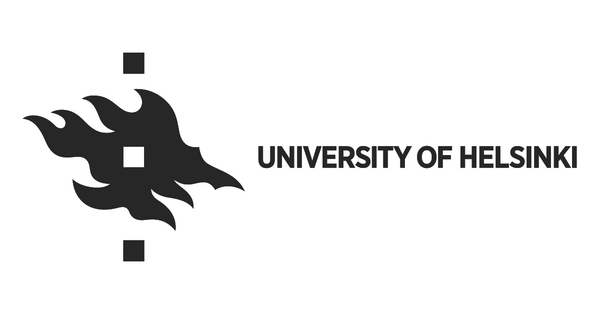University of Helsinki: Veterinary Medicine alumnus Carl-Heinz Klatt’s legacy supports continued internationalisation
Antti Sukura, Dean of the Faculty of Veterinary Medicine, has followed the development of the donation culture throughout the 2000s, first as Professor of Pathology and since 2007 also as Dean of the Faculty of Veterinary Medicine.
“It is early days of international donation culture in Finland. In the United States, it is common to donate significant assets already in one’s lifetime or by bequest for purposes that support the donor’s goals. The donations continue the donor’s life’s work, or the life’s work gains permanent meaning and continuity,” Dean Sukura says.
Many interested in making a bequest in support of veterinary medicine have contacted the university during Sukura’s term as a Dean. In 2018, the Carl-Heinz and Ingeborg Klatt Fund was established as part of the Fund for Veterinary Medicine in one of the largest bequests received by the university in recent years. The capital of the Fund is almost EUR 1 million.
The bequest of the Alumni of veterinary medicine Carl-Heinz Klatt is just as described above: The proceeds of his bequest are used to further goals important to him, such as promoting internationality and cooperation between the University of Helsinki and his alma mater, the University of Veterinary Medicine Hannover. With the help of the legacy, veterinary medicine can be developed in a permanent way,” Sukura says.
From Hannover to Helsinki
Carl-Heinz Klatt (1921–2010) was born in Helsinki and also graduated from high school there. He then graduated from Hanover in 1944 with a bachelor’s degree in veterinary medicine and a doctorate in veterinary medicine from Bern in 1948. Studying abroad was typical of the time, as the University of Veterinary Medicine was not established in Finland until 1945. Klatt did his life’s work as a city veterinarian in Helsinki, and he also taught veterinary history at the University of Veterinary Medicine after retiring in the 1980s.
Klatt and his German spouse Ingeborg Klatt accumulated assets in both Germany and Finland.
“It took time to take inventory of the assets in Germany and Finland, and so the Carl-Heinz and Ingeborg Klatt Fund was not established until 2018. The fund is an important part of the Fund for Veterinary Medicine and, at the same time, it is the largest fund carrying the donor’s name in terms of capital,” Dean Sukura tells about the background to the donation.
Establishing of a bequest to support researchers and students
Carl-Heinz Klatt also maintained close international relations after his studies, and internationality was important for Klatt in acquiring new knowledge and skills and in the development of the discipline. Extensive language skills were also important for student exchange, which Klatt encouraged students to do even during the period before the current exchange programmes.
“It seems very natural that he bequeathed most of his possessions to be used in the veterinary medicine cooperation and exchange programme between Helsinki and Hannover,” Dean Sukura says.
“Currently, we fund the work of a doctoral student in a joint research project of University of Veterinary Medicine Hannover and the Faculty of Veterinary Medicine of the University of Helsinki, which studies the effects of environmental pollutants, especially heavy metals, and the mechanisms of their effects on gametes in domestic animals. Reproductive health research is part of the research on the common health of people, animals and the environment that is important to the faculty, and thus it carries out Kaltt’s wishes and the goals of the university very well,” Dean Sukura says about the importance of the fund for students and research.
The history of veterinary medicine was important to Klatt, and in addition to teaching, he also built up and maintained the activities of the Museum of Veterinary Medicine.
“As a suitable project, the research on the history of veterinary medicine will also receive support from the fund,” says Sukura.
On the International Legacy Giving Day, 13 September 2021, we want to highlight the importance of donations
The University of Helsinki is organising a Legacy Giving Day event for the third time on the International Legacy Giving Day on 13 September 2021. The event is organised as an online event.
“Last year, our online event was followed by 50–60 participants,” says Pia Dolivo, Head of Community Relations. In her lecture, together with the university’s legal counsellor Laura Karppinen, she will talk about making a bequest for the university.
The programme of the International Legacy Giving Day event will also include examples of the importance of donation funds in support of a particular discipline presented by Olli Peltoniemi, the Vice-Dean of the Faculty of Veterinary Medicine.
“In addition to medicine, veterinary medicine is one of the areas where we receive regular enquiries about supporting by donations. Of course, we do not know much about the bequests people will make before the will is realised, sometimes after several decades,” Dolivo says.
“Klatt’s bequest is exceptionally large even for our university. However, all bequests are equally important as part of the donation pool. The amount of assets received by the university is typically from a few tens of thousands of euros to some hundreds of thousands of euros,” says Pia Dolivo and gives thanks to all donors who have supported studies and research in the University of Helsinki.

